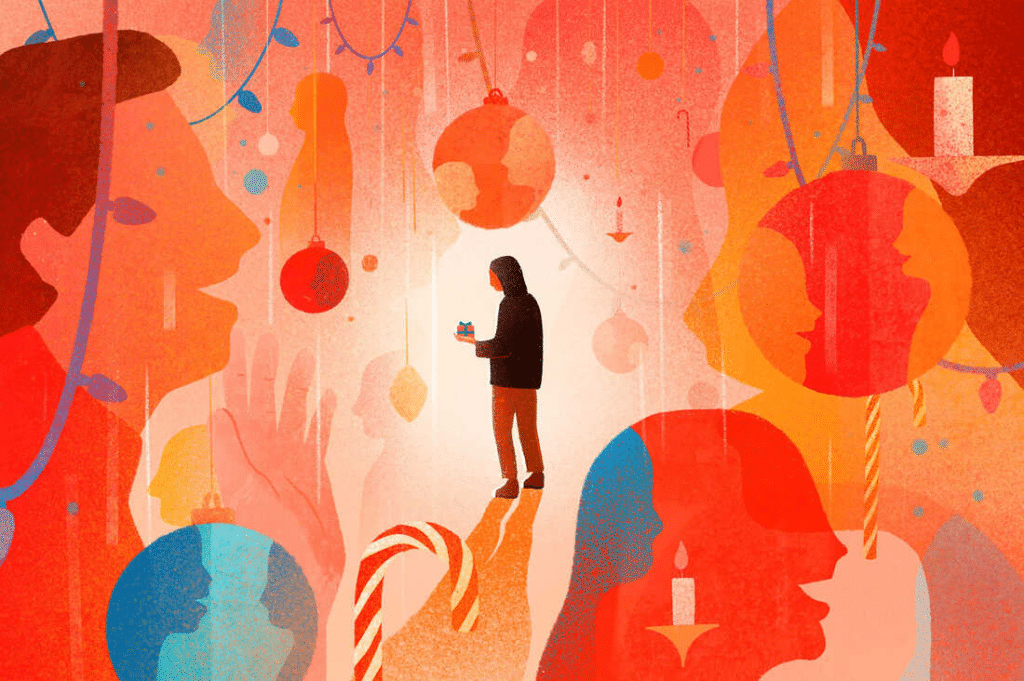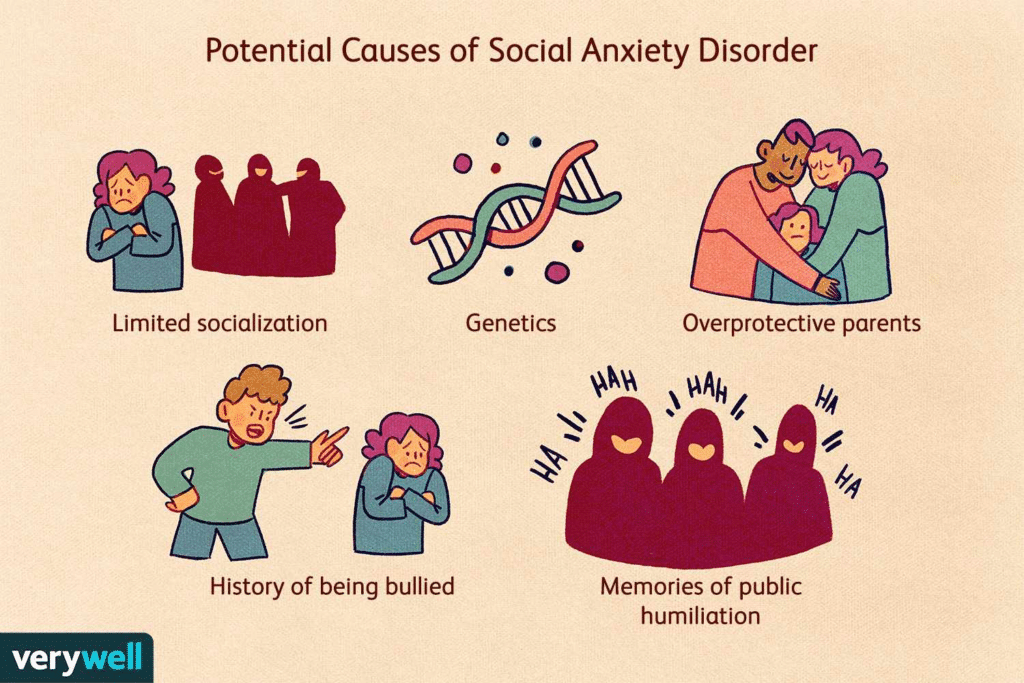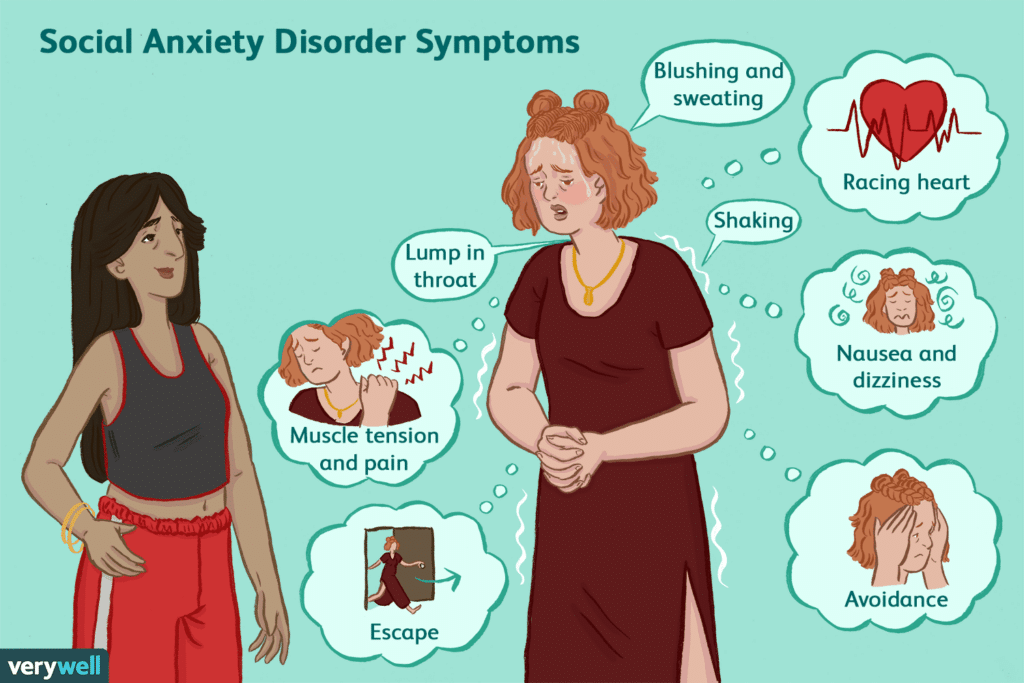Amongst the list of phobias in Nigeria, social anxiety takes the lead with a whopping 12%. This percentage, however, only accounts for university students in Nigeria between the ages of 16 – 24.
This leaves us wondering what exactly the numbers are when it comes to social anxiety.
For a country that shies away from speaking on mental health issues, the best we can do is provide information on this disorder and how to recognize and help yourself if you discover you have it.
RELATED: Mental Health: Cultural Perceptions and How To Deal With It In…
What is social anxiety?
Social anxiety disorder (SAD), also called social phobia, is the third most common mental health disorder after depression and substance abuse. It is an irrational fear of being around others that make one isolate themselves.
It’s common to experience anxiety in certain social settings. For instance, giving a presentation or going on a date can make you feel butterflies in your stomach.
But with SAD, you constantly worry about how other people will react to you in social situations and feel self-conscious and embarrassed.

Types of social anxiety
As opposed to types of social anxiety, we have levels to it. Someone suffering from SAD may experience mild, moderate, or severe symptoms.
Minor social anxiety
A person with minor levels may nevertheless engage in or tolerate social events despite experiencing the physical and psychological signs of social anxiety. Additionally, they might only exhibit symptoms in particular social settings.
Moderate social anxiety
A person with this level may exhibit physical and psychological signs of the condition but continue to engage in some social activities while avoiding others.
Excessive social anxiety
At this level, a person may encounter more severe symptoms of the condition in social settings, such as a panic attack.
As a result, those who suffer from severe SAD typically steer clear of social situations at all costs. Extreme social anxiety often manifests as symptoms in a variety of social settings.
SEE: Mental Illness: Causes and Perception in Nigeria
Causes of social anxiety

It still remains a mystery why SAD occurs. However, according to researchers and medical specialists, it can occasionally run in families. Although it remains unknown why some family members have it while others do not.
Since fear and anxiety are processed by numerous brain regions, this disorder is a challenging condition to investigate.
Researchers are also examining the potential links between social anxiety and stress and environmental factors.
Symptoms of social anxiety

Particularly in children, shyness or discomfort in particular settings are not always symptoms of SAD. Depending on personality qualities and life experiences, different people are more or less at ease in social settings. Some people are more reserved by nature than others.
SEE: 15 Fun and Relaxing Hobbies for Women of All Ages
That being stated, here are 2 categories of symptoms you can look out for:
Emotional and behavioral symptoms
- Avoidance of situations or interactions with individuals out of embarrassment
- Avoiding circumstances where you might be the focus of attention
- Fear of a dreaded activity or event-related anxiety
- Severe anxiety or fear in social situations
- After a social event, evaluate your performance and look for weaknesses in your interactions.
- Anticipating the worst potential outcomes as a result of a bad social experience
Physical symptoms
- Sweaty palms
- Upset stomach or nausea
- Trouble catching your breath
- Dizziness or lightheadedness
- Feeling that your mind has gone blank
- Muscle tension
- Trembling
- Blushing
- Increased heart rate
Do I have social anxiety or am I just shy?
Anybody can be shy. But when you have SAD, daily things like interacting with others become routinely difficult or impossible. As a result, this disorder can have a severe impact on your interactions with others, your profession, and your education.
As a rule of thumb, ask yourself these 3 questions to determine if you have SAD or if you are just shy.
- How much does it interfere with your day-to-day life?
- How intense are your fears when in social situations?
- How much do you avoid certain situations?
READ ALSO:
- 10 Ways to Keep a Healthy Lifestyle
- How To Build Social Skills
- Social Generations – All You Need to Know
Treatment for social anxiety
Cognitive behavioral therapy (CBT) and/or medications like antidepressants (usually selective serotonin reuptake inhibitors, often known as SSRIs or beta-blockers) are very effective treatments for social anxiety disorder.
It is advisable to see a therapist before self-diagnosis and ultimately self-management and medication.
A final note on social anxiety disorder
Many times people with SAD are labeled as proud or shy. This is because based on personality type, people tend to develop coping mechanisms to protect themselves in social situations.
RELATED: Types Of Personalities
If you have ever been in a situation where you said, ‘Oh, I thought she was a snub till I spoke to her’, then you were most likely talking to someone with social anxiety.
Apart from these categories, those who tend to be ‘people pleasers’ could be experiencing some form of SAD as well.
That being said, for proper diagnosis and treatment, it is best to visit a psychiatrist.
